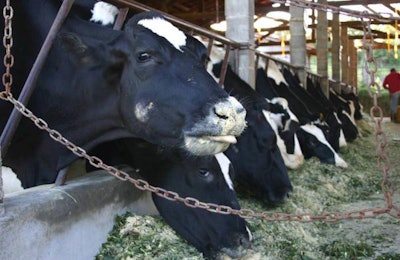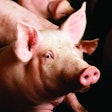
A new study says bacteria may be the key to producing large amounts of microbial proteins to replace some crops fed to livestock.
With growing demand and advances in technology, Benjamin L. Bodirsky, Ilje Pikaar and colleagues wanted to analyze the long-term effects that incorporating microbial proteins could have on land use, climate-warming greenhouse gas emissions and reactive nitrogen pollution.
In a study appearing in Environmental Science & Technology, the researchers used an advanced computer model to generate projected land-use and agricultural-production patterns. Overall, the 48 scenarios tested suggest that, by 2050, microbial proteins produced with hydrogen and other gas feedstocks could replace between 175 million and 307 million tons of crop-based animal feed annually, or 10 to 19 percent of conventional crop-based animal feed protein demand. The researchers say this change could have a substantial global impact. By replacing 13 percent of the protein in feed with microbial proteins, the research team projects that worldwide cropland usage could be reduced by 6 percent, global nitrogen losses from croplands by 8 percent and agricultural greenhouse gas emissions by 7 percent.
Livestock is the world’s largest user of land resources, with pasture and land dedicated to the production of feed representing almost 80 percent of the planet’s total agricultural land, according to the Food and Agricultural Organization of the United Nations. Producing these crops is one of the most important contributors to global pollution and can lead to large-scale deforestation and biodiversity loss. By 2050, estimates suggest that the world’s population will top 9 billion people, increasing the demand for livestock to feed humans. In turn, feeding these animals will require more land and could lead to additional environmental harm.















